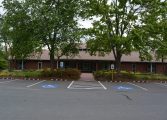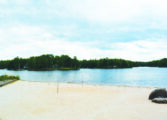By Heather Michon
Correspondent
In the aftermath of the Civil War, some former Confederates dreamed of starting a new life in a new land.
Few dreamed as big as Fluvanna County’s Henry M. Price.
Within weeks of the Confederate surrender at Appomattox, the 42-year old Cunningham farmer, physician, and land speculator began negotiating with the government of Venezuela to establish a colony free from “Yankee domination.”
Venezuela was anxious to promote settlement in its isolated interior and made Price a phenomenal offer: a grant of 240,000 square miles of free land south of the Orinoco River. All he had to do was provide the settlers.
But despite heavy promotion in the South and in England, the Scottsville-based “American, English, and Venezuelan Trading and Commercial Company” failed to attract many colonists. The trip to the Price Grant took as much as two months, and once there, the soil proved less than ideal for farming.
A small group of colonists managed to construct a small settlement as a future capital city, but others followed rumors of gold far into the interior, never to be heard from again..
Price himself traveled to Venezuela in April 1867 with the idea of reaching the settlement at Port Las Tablas and surveying a future home for his family.
In letters home to his wife and children in Fluvanna, he described the exotic scenes of palm trees and monkeys and native women bathing naked in the rivers–while at the same time trying to assure them it wasn’t that different from home. He told them the main mountain range “is very similar to the Blue Ridge as seen from Scottsville,” and the heat and humidity was reminiscent of a Southern summer.
“I will bring you a young, untrained parrot,” he promised his young daughter, Rebecca. “The trained ones speak Spanish.”
The trip was going well. In Ciudad Bolivar, he met with several high-ranking government officials, and they joined him for a trip up the Orinoco River to Port Las Tablas.
He never made it to the settlement.
Somewhere along the Orinoco, Price and his business partner did something that angered the government officials. They ended up shoving the two men off the boat and leaving them on an isolated stretch of riverbank.
Price and his partner spent several weeks relying on the hospitality of local tribes to keep him alive. By the time the government sent someone to retrieve them, both men were desperately sick with malaria. They were taken back to Ciudad Bolivar and loaded on to the first ship headed for the United States.
Price arrived in New York on the brink of death. He was nursed back to health by the ladies of the Southern Relief Society, a group of wealthy Southerners who moved to the city after the war. He returned home to Fluvanna around Christmas 1867 and spent the next year recuperating.
Amazingly, he still believed in his vision for the Price Grant. For the next two years, he continued to promote the settlement, never once mentioning his harrowing experience, or the fact that he had never actually seen the land he was promoting as a paradise.
By now, Venezuela was caught up in its own civil war. The new government was disinterested in promoting American and British settlement and told Price that his grant was declared invalid.
This was an emotional blow to Price, but it was also a financial one. He was forced to turn to the federal government — the same government he had tried to repudiate — for help clawing back some of the $100,000 he said he had invested in the project. He spent almost 20 years trying to get the government to act on his behalf, until they finally told him that, as far as they were concerned, the matter was closed.
Price left Fluvanna, his home of over 50 years, sometime in the 1890s. This time, he only emigrated as far as Tennessee, where his son had settled near Knoxville. He died there around 1904.
There’s never been a complete account of the thousand or so people who emigrated to the Price Grant. We do know that some died there, and some came back home to the United States. But it is possible that there are some Venezuelans today whose ancestors followed this Fluvanna man’s dreams of empir, and decided to call it home.
———–
The story of Henry Price and other tales from the Civil War and Reconstruction can be found in the latest edition of the Fluvanna Historical Society’s annual journal, Fluvanna History. If you would like to purchase a copy, you can email fluvannahistory@gmail.com for information.




